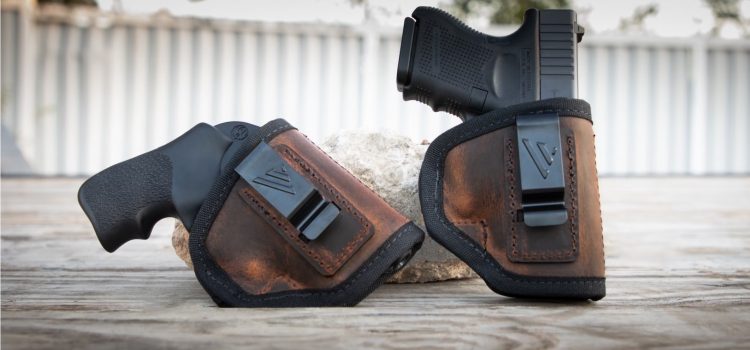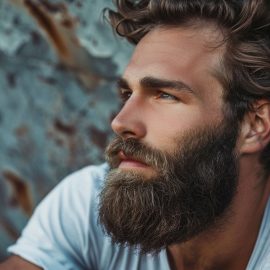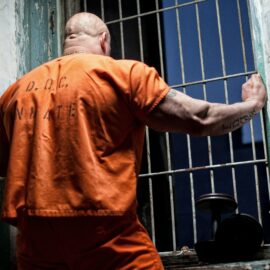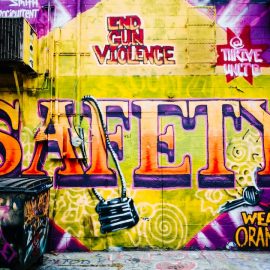
This is a free excerpt from one of Shortform’s Articles. We give you all the important information you need to know about current events and more.
Don't miss out on the whole story. Sign up for a free trial here .
What does permitless carry mean? How many states allow permitless carry? What should you know about open and concealed carry laws?
In the last decade, the number of permitless carry states—those that allow people to carry concealed weapons without a license—has jumped from two to 25. However, the change isn’t as drastic as it sounds.
Read on for an overview of permitless carry in the United States, including what’s changing for gun owners.
Permitless Carry—25 States & Counting
Since 2010, the number of “permitless carry” states has grown from two to 25, allowing people to carry concealed firearms in public without a license to do so. But this change isn’t as drastic as it sounds. In this article, we’ll break down what’s actually changing and what it means for you.
What’s Changing and What’s Not
In most states that have enacted permitless carry, it doesn’t change who’s allowed to carry a gun, but only how they’re allowed to carry it. Everyone who was prohibited from possessing guns before “permitless carry” is still prohibited from possessing them. The changes just make it easier for someone who legally possesses a gun to legally conceal it, instead of carrying it openly.
Historically, most states had laws prohibiting concealed carry or requiring you to get a permit before carrying a concealed weapon. However, many of these states never had laws that prohibited open carry or required a license for it.
Recently, states have been moving to reconcile their laws so that the legal requirements for open carry and concealed carry are about the same. In principle, state legislators can do that in either of two ways: They can repeal the laws that restrict concealed carry, creating “permitless carry,” or they can pass new laws to restrict open carry like they restrict concealed carry.
The Trend Toward Permitless Carry
The trend has been leaning towards permitless carry: 25 states have legalized permitless concealed carry so far. A recent ruling by the U.S. Supreme Court that barred states from denying concealed carry on certain grounds also reflects and reinforces this trend, although the ruling still allows states to require a permit. And a surge in gun sales in 2020 and 2021 in which many buyers were reportedly purchasing their first firearm, demonstrates that more Americans appear to be interested in owning and carrying guns.
However, despite this trend, some states are moving in the other direction. For example, Oregon, (which allows open carry without a permit but requires a permit for concealed carry) recently passed legislation that would require a permit to purchase a firearm, meaning new gun owners will effectively need a permit for either open or concealed carry.
And some states are arguably moving in both directions. For example, Idaho recently allowed permitless concealed carry (in addition to open carry, which wasn’t restricted to begin with). But at about the same time, the state prohibited carrying firearms in certain places (such as college campuses) without a new type of permit.
The Numbers
At the present time:
- Four states and the District of Columbia prohibit open carry and require a permit for concealed carry. (CA, FL, IL, NY)
- Eight states require a permit for both open and concealed carry. (HI, MN, SC, MD, NJ, MA, RI, CT)
- Thirteen states allow open carry without a permit but require a permit for concealed carry.
(CO, DE, LA, MI, NE, NV, NM, NC, OR, PA, VA, WA, WI)
- 25 states allow both open and concealed carry without a permit.
How the Changes Affect You
Permitless carry laws primarily affect how gun owners can carry their guns in public: If you live in a permitless carry state, you won’t need to apply for a permit before carrying a concealed firearm. But you’re still accountable for carrying your gun safely and for obeying all the remaining gun laws in your state, which can be complicated. In some states, permitless carry did away with mandates to complete training on firearms handling and/or laws to get a concealed carry permit.
If you live in one of those states, now all the onus is on you to learn gun law and defensive shooting skills on your own—the state no longer has formal procedures to shepherd you over the learning curve. Some sources worry that this invites accidental shootings and other unintended crimes if people choose to carry without getting enough training.
More Guns, More Concealment
If a state adopts permitless carry, it may prompt more people to carry guns in public, but you may actually see fewer guns in public. This is because permitless carry allows them to conceal their guns. As such, the trend toward permitless carry will likely make concealed carry more common relative to open carry.
This is significant partly because open carry isn’t always socially acceptable, even where it’s legal. This is a challenge for police, who sometimes receive complaints about someone carrying a gun, or guns, conspicuously in a place where open carry is legal. In cases where people were frightened by the sight of a person carrying a firearm, the person with the gun was sometimes arrested for causing public fear.

Want to fast-track your learning? With Shortform, you’ll gain insights you won't find anywhere else .
Here's what you’ll get when you sign up for Shortform :
- Complicated ideas explained in simple and concise ways
- Smart analysis that connects what you’re reading to other key concepts
- Writing with zero fluff because we know how important your time is






